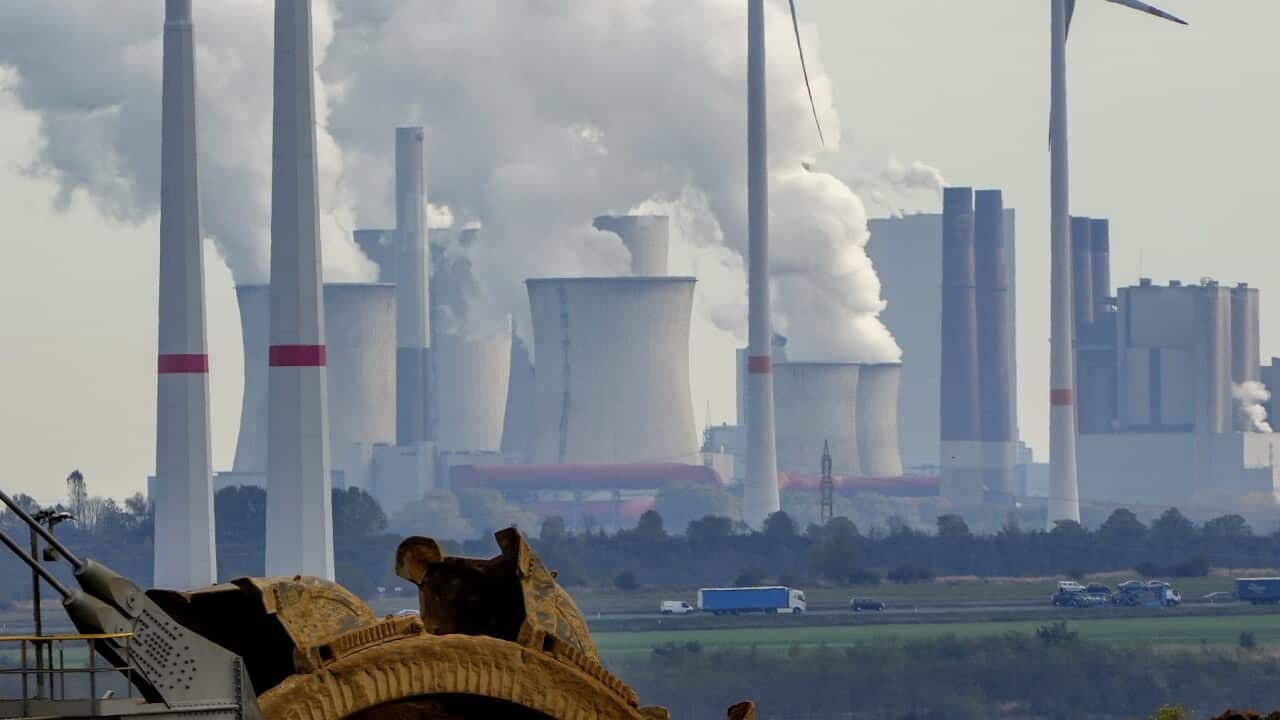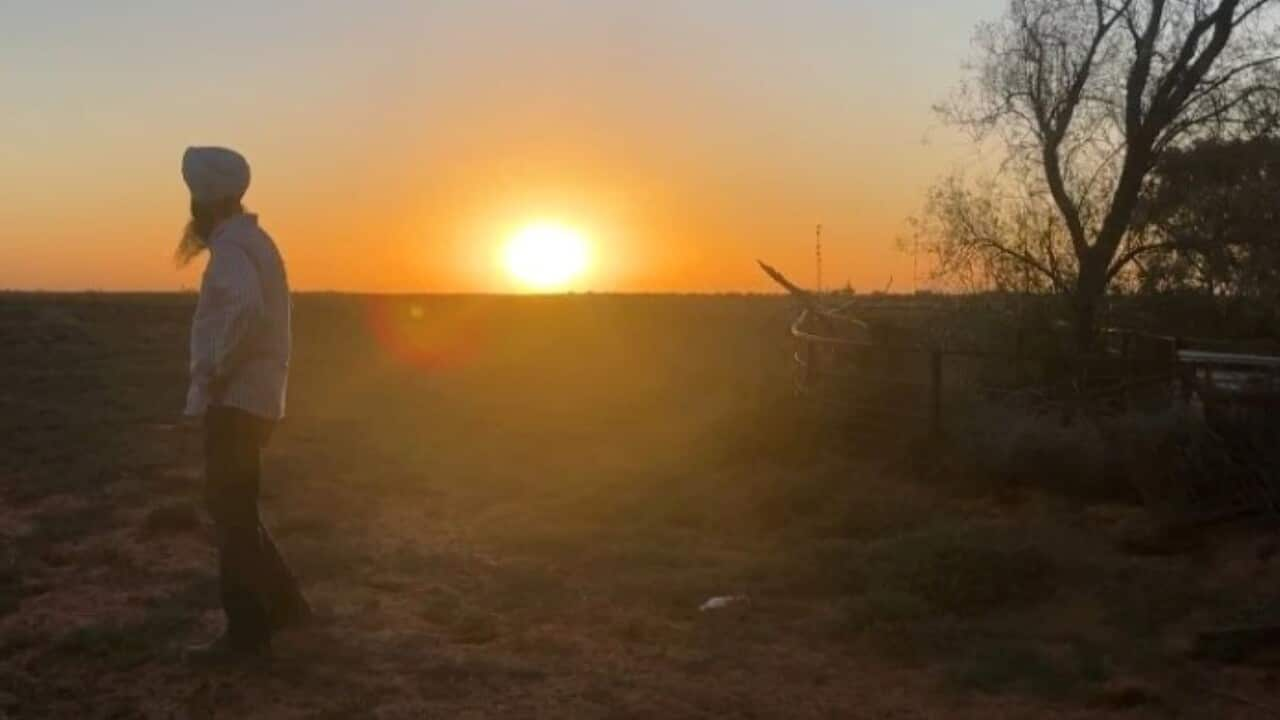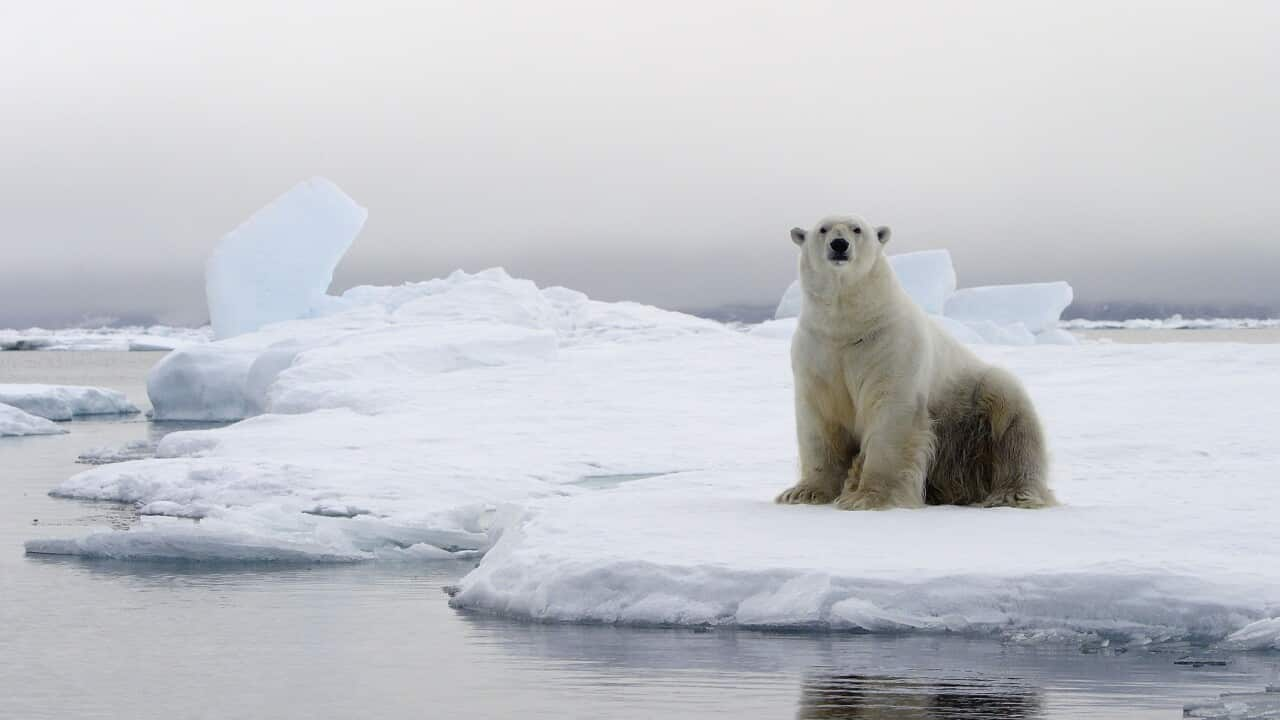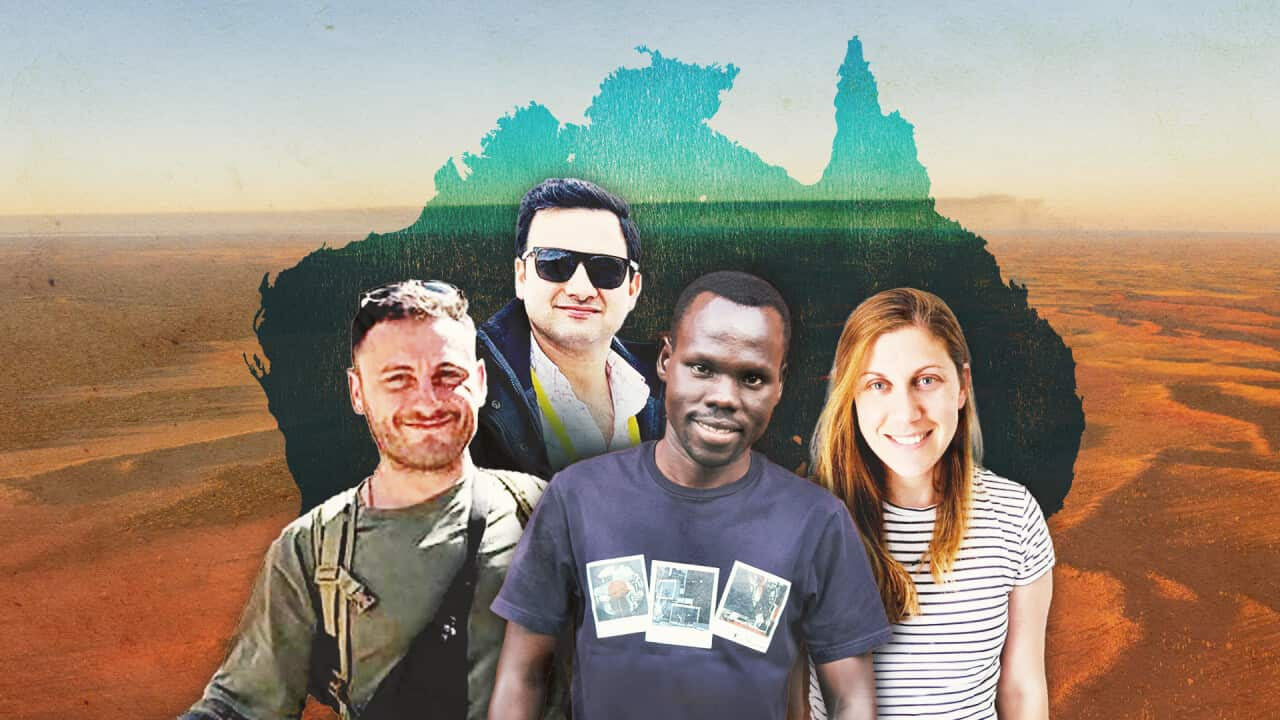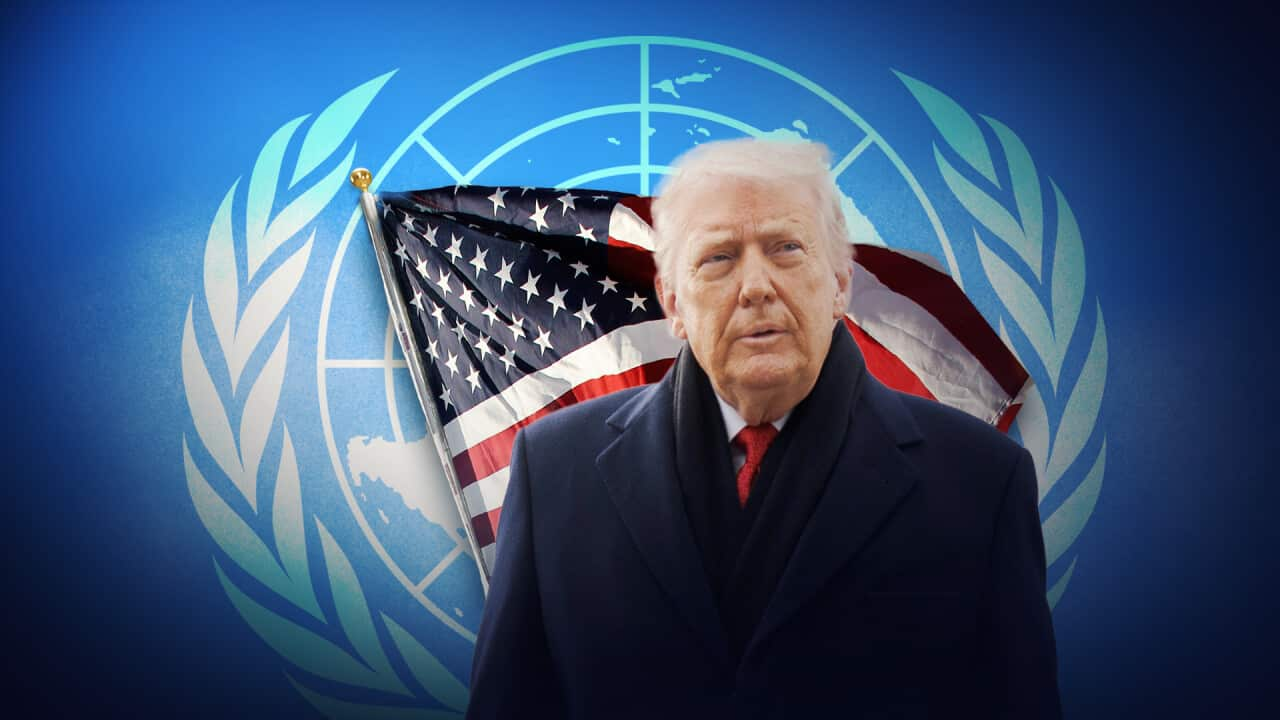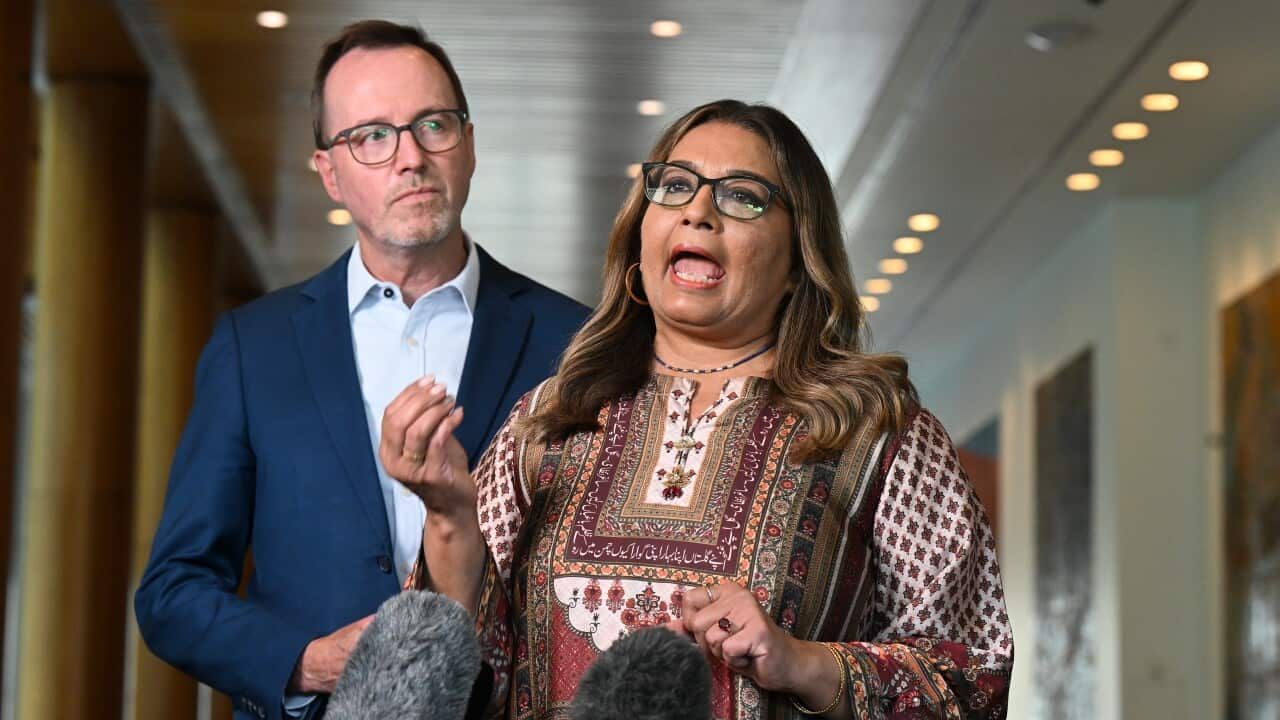Listen to Australian and world news, and follow trending topics with SBS News Podcasts.
TRANSCRIPT
The Amazon is often called the ‘lungs of the world’ – and it’s in the Brazilian city of Belém on the edge of this iconic forest that two weeks of global climate negotiations wrapped up on Sunday.
The so-called COP30 summit ended with an agreement that will mollify some and mortify others.
Optimistic observers have welcomed steps forward – like the call for wealthy countries to triple their contributions to climate adaptation financing aimed at helping the most vulnerable countries adapt.
And some major players like China and India have spoken positively about the deal.
Others, like Mauricio Voivodic from the World Wildlife Fund, lament what they see as lost chances to reverse the ongoing rise of carbon emissions.
“I was expecting much more. I think we are we have missed a very important opportunity here.”
After long and sometimes bitter negotiations, the text of the agreement does not mention fossil fuels by name, nor lay out an explicit plan to ease reliance on coal, oil and gas.
That's something dozens of countries had pushed for - but the move was blocked by several fossil fuel exporting nations - notably including Gulf Arab states.
It prompted a frustrated response from some countries, including Colombia, where Daniela Durán Gonzálaez is the head of international affairs in the environment ministry.
“The COP of the truth cannot support an outcome that ignores science. According to the IPCC, nearly 75 per cent of global CO2 emissions come from fossil fuels. There is no mitigation if we cannot discuss transitioning away from fossil fuels.”
The European Union also conceded it wanted more ambitious action, while the Alliance of Small Island States called the deal "imperfect" but still a step towards "progress".
It's a disappointment COP30 President André Corrêa do Lago acknowledged as he closed this year's conference.
“We know some of you had greater ambitions for some of the issues at hand. I know the Youth Civil Society will demand us to do more to fight climate change. I want to reaffirm that I will try not to disappoint you.”
He continues as COP President until the thirty first conference takes place next year - promising to use that time to develop two roadmaps.
The first will work towards halting and reversing deforestation, and -
“... another to transitioning away from fossil fuels in a just, orderly, and equitable manner." (Applause)
Once the Presidency of Mr Corrêa do Lago and Brazil ends, Türkiye will host COP31, after Australia withdrew its bid to co-host the conference with Pacific countries in Adelaide.
It's the culmination of a long a standoff that escalated in recent weeks, until Climate and Energy Minister Chris Bowen agreed to a compromise.
He will act as President of Negotiations, playing a key role in the diplomacy around the next conference.
“Türkiye and Australia will deliver a COP31 which will underline real, meaningful and impactful climate cooperation in partnership as well with the Pacific Islands who have so much stake in the climate change battle.”
Mr Bowen says it has been a difficult but very important conversation.
“And I'm very confident that the trust and good will between Australia and Türkiye will see a COP delivered and a COP delivered extremely well, with good and solid results in a difficult international environment.”
This year, international enthusiasm for tackling climate change has been blunted by a U-S withdrawal from the Paris Agreement, as part of a global shift away from multilateralism.
Trade also emerged as a key issue at this year's talks, as Europe prepares to implement border taxes on high-emissions products like steel, cement and aluminium.
There's some language in the agreement on that front - but like much of the consensus-based text, it's expressed in relatively abstract abstract terms.
This somewhat nebulous nature of global climate talks stands in stark contrast to the reality rising emissions presents for vulnerable communities.
That's the sound of an indigenous activist being removed from the conference centre, during one of two dramatic first nations protests.
Demonstrators said they were upset about ongoing deforestation and development on their lands.
It's a reminder of what's at stake in these talks, ten years after the Paris Agreement, which aims to limit limit global heating to less than 1.5 degrees above pre-industrial levels.
This year's text explicitly acknowledges the window to meet that goal has all but closed, but like many participants in the COP process, Chris Bowen prefers to highlight what has been achieved.
“The Mutirão has reminded us of significant progress and successes in the last 10 years, including reducing the projected global warming from 4 degrees to potentially 2.3 to 2.5, setting the world on an irreversible path to net zero and igniting the global clean energy transition with immense economic opportunities. But at the same time, it's made clear that significant work remains ahead of us to close the gap to 1.5. So in this regard, we welcome the establishment of the Belém mission to 1.5 and the global implementation accelerator to help drive implementation cooperation and investment in climate action.”
